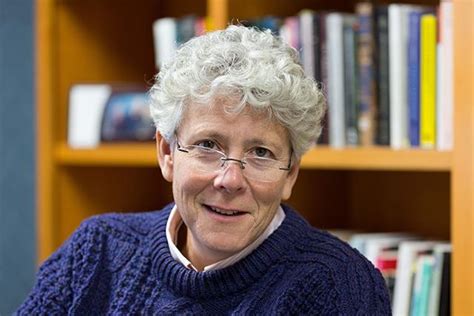Top 8 Quotes & Sayings by Peg O'Connor
Explore popular quotes and sayings by Peg O'Connor.
Last updated on April 16, 2025.
Anxiety is the dizziness we experience when we recognize we hold the freedom and responsibility for our life choices. More than anyone, alcoholics have a very clear sense of this dizziness, especially when we were coming to realize our own powerlessness over alcohol and that we could act differently.
Above all else, philosophy ought to aim for clarification - of the self, one's place in the world, and the ways we make meaning. Philosophy, when practiced well, can be useful. It can enable us to grapple in productive ways with questions about the meaning of life and who I am and how I want to be in the world.
















